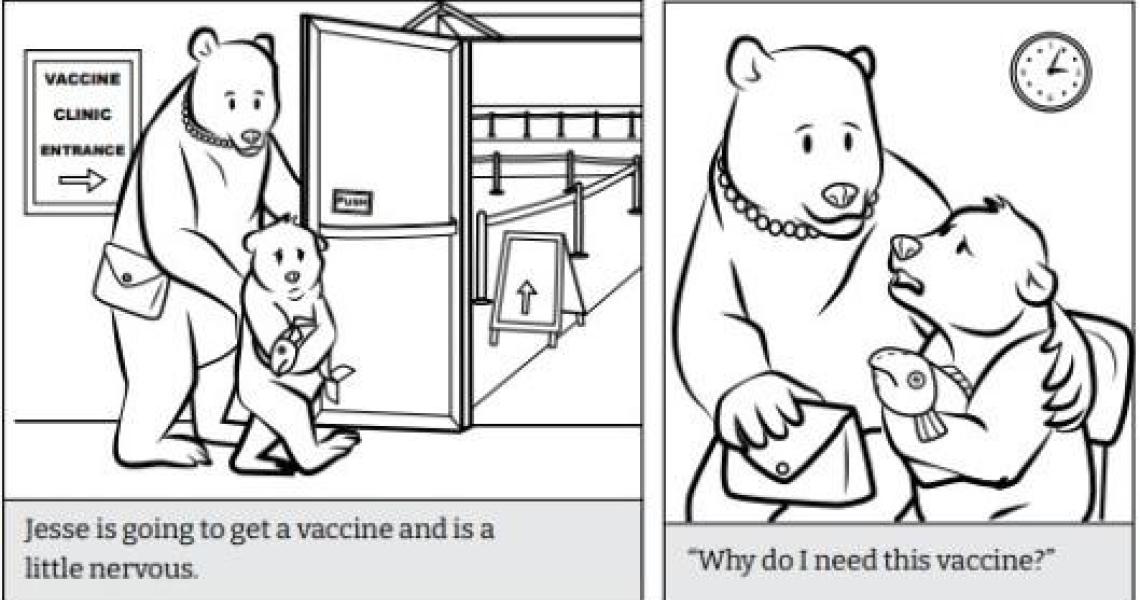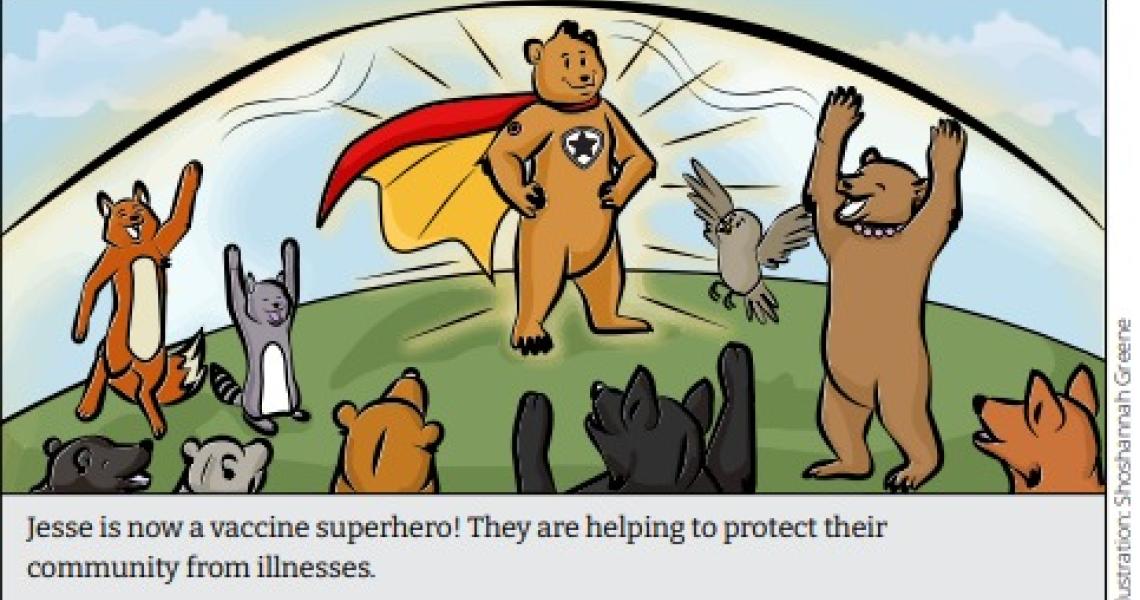
Prepare your child
For most school-age children, being informed about the immunization one day before the clinic gives them enough time to prepare. Stay calm when discussing the immunization with your child. When you stay calm, it helps your child stay calm and feel like everything will be okay. Use a matter-of-fact, supportive approach and answer your child's questions honestly. Read more about what to do and what not to do when discussing the immunization with your child.

Numb the skin
Numbing creams and patches decrease the pain when the needle is given. You can buy numbing creams or patches at your local pharmacy without a prescription. The cream or patch needs to be put on 30-60 minutes before the immunization. If you'd like to use these products at a school clinic, please contact your local health unit or community health centre and speak with a nurse. Read more about using numbing creams and patches for immunizations.

Distraction
Distraction can help reduce your child’s pain with immunization. Help your child choose a distraction to use before and during the immunization. It doesn’t matter what the distraction is — it just needs to be something that will actually distract your child. They can read a book, play a game or watch a video on their phone, listen to music, talk to someone, or daydream about fun things.
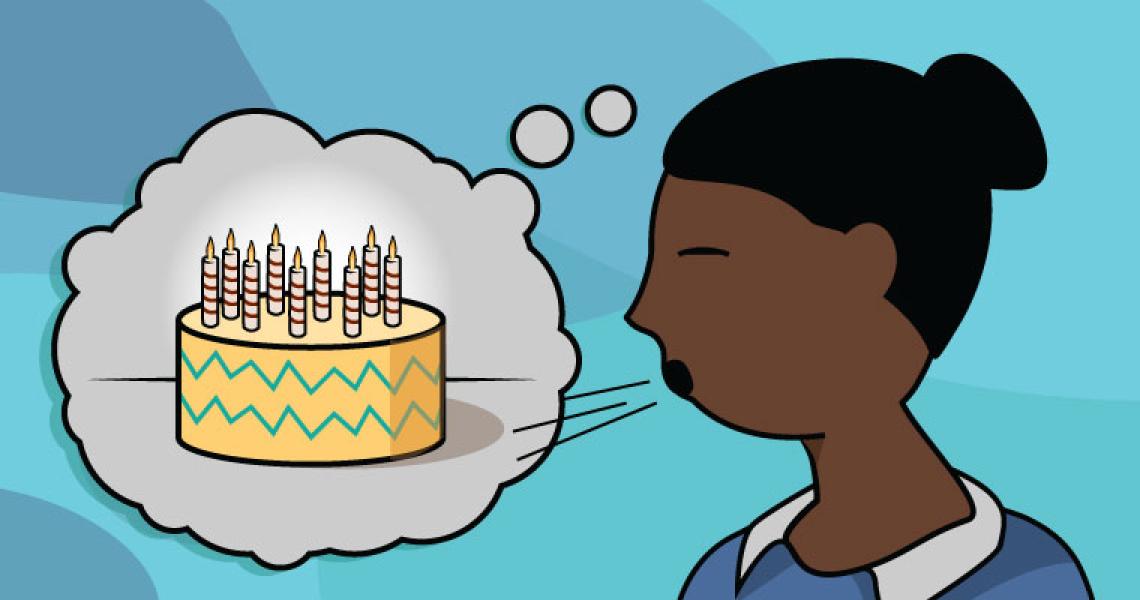
Deep breathing
When your child breathes deeply, it can help relax and distract them. Practice deep breathing with your child before the clinic. Have them breathe in deeply for a count of five, then exhale for a count of five. Tell them to breathe deeply before, during, and after the immunization. Pretending to blow bubbles or a party blower or to blow out candles on a cake can help your child take deep breaths.
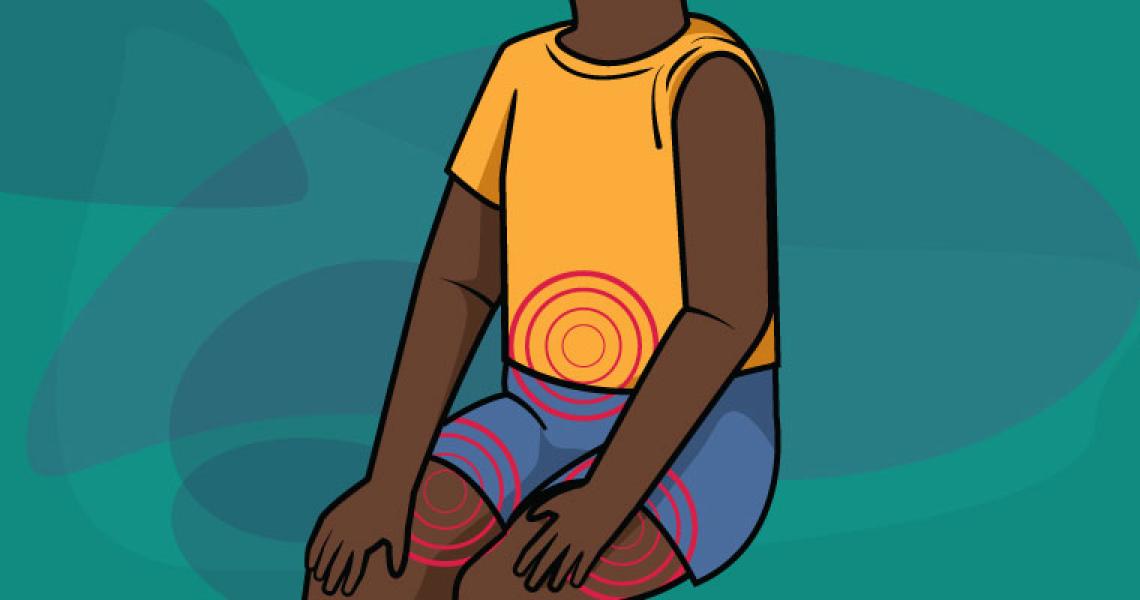
Muscle tension
Does your child feel faint with needles? Muscle tension is a safe technique children 7 and older can use if they get dizzy and faint during needles. Read this handout to learn how to use muscle tension. Make sure the nurse or doctor knows if your child has fainted with needles or other procedures before. Muscle tension increases blood pressure and blood flow to the brain, which helps prevent fainting.

Be positive
Keep a positive attitude and recognize your child's efforts. Say things like, "I know that was hard for you, and I'm proud of you for doing it," or "Great job using the strategies we discussed to help you relax while you got the vaccine." Praising your child helps them feel good about the skills they learned from the experience – skills that will help in future difficult situations.
When discussing the immunization with your child
- Stay calm and speak in an even and soft tone of voice.
- Answer your child’s questions honestly. For example, say, “You need the vaccine to stay healthy. The nurse will put in your arm with a needle. You will feel a quick poke."
- Use words that lessen anxiety, like pressure, squeezing, and poking.
- Praise your child for their efforts. Say things like, "I'm proud of you for doing it," or "I really liked how you took lots of deep breaths while the nurse gave you the vaccine."
- Over-reassure your child with phrases like, "It will be over soon, and you will be okay."
- Use words that can cause anxiety, such as shot, pain, hurt, and sting.
- Give false reassurance, such as "It won't hurt."
- Apologize. For example, don't say, "I am really sorry you must go through this."
Use the CARD system
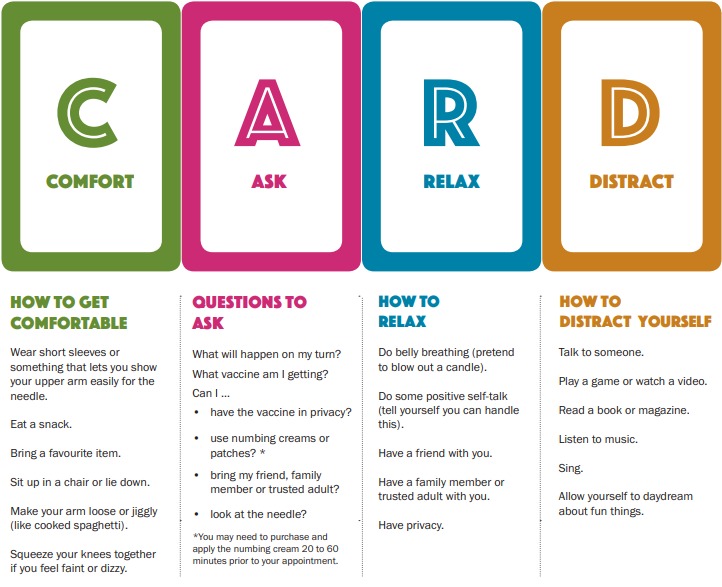
Videos from AboutKidsHealth at The Hospital for Sick Children
Video: Improving the immunization experience at school
Video: School Immunizations – The CARD™ System: Play your power CARD
For more CARD™ resources go to the About Kids Health website.
JESSE THE BEAR STORY
Jesse is going to get a vaccine and is a little nervous. Jesse brought a favourite toy and used belly breathing to feel calm. There was a tiny pinch on the arm, and it was over. That was easy! Jesse is now a vaccine superhero!
